Laura Blakemore Corbin, MPH PA-C was surprised by her unexpected diagnosis with primary ovarian insufficiency, also called premature ovarian failure. In other words, she discovered at the age of 32 that she was experiencing hormonal shifts most often associated with menopause. As a physician’s assistant, Laura pairs her medical experience with dry humor to tell her primary ovarian insufficiency story.
Read Laura’s story to learn what to expect from primary ovarian insufficiency, what it means for fertility and mental health, and how to move forward from such a diagnosis.
She cautions that mental healthcare should be the first step after a primary ovarian insufficiency diagnosis. Laura also reminds us that there is hope for those with POI, as she and her husband now have a gorgeous two-year-old son.

This site contains affiliate links, meaning that we earn a small commission for purchases made through our site. We only recommend products we personally use, love, or have thoroughly vetted.
Laura’s Primary Ovarian Insufficiency Story
May fifth, two-thousand twelve was the first day of my last “normal” period and the unexpected end of naïveté in regards to grief. I was 32 years old, newly married, and in the middle of my physician assistant training when my cardiologist asked me to stop my birth control pill because I was having heart palpitations.
“Are you ok with the risk of pregnancy?” he asked, while inwardly I squealed with glee at the idea of having a baby. I was elated to start trying. Little did I know that over the next month, that glee would dissolve into the darkness of infertility.
The first two weeks after my period were normal. I was doing rounds at the hospital in my third week off the pill when I had my first hot flash.
It was subtle and I thought, “What the heck…was that just a hot flash??” But they started coming faster and more intense as my nights became filled with restless sleep and soaked bed sheets.
When those first 28 days were up, my period did not come. I hoped that maybe it was just all the stress from school or my body having a hard time coming off the pill–or maybe we were already pregnant!
But my medical mind knew better. When my bloodwork came back, the analysis of my hormone levels indicated my worst nightmare: primary ovarian insufficiency (POI).
Editor’s note: primary ovarian insufficiency and premature ovarian failure have been used interchangeably in the medical community.
What is Primary Ovarian Insufficiency?
Also called premature ovarian failure, primary ovarian insufficiency is characterized by irregular menses with increased gonadotropins and low estrogen (sex hormones that stimulate the production of ova).
In layman’s terms: it’s early menopause.
As health care providers, we are discouraged from using that term as it is technically inaccurate. Menopause is complete cessation of periods; whereas women with POI can have intermittent ovulation and spontaneous pregnancy.
But when you’re in the midst of learning you now have a primary ovarian insufficiency story to tell, early menopause feels like an accurate description.
I had hot flashes, night sweats, and couldn’t remember my name, coupled with vaginal dryness that mimicked the Sahara. Sounds a lot like menopause, doesn’t it?
My primary care provider sent me to my OB/GYN for confirmation of the diagnosis. She walked in and said, “You have ovarian failure so you will never have biological kids. But don’t worry, it’s no big deal. You can adopt or use donor eggs.”
I didn’t hear anything after that. I went outside to the curb of the hospital I worked in, and I melted down.
I subsequently fired her.
Editorial note: We’ve talked a lot about what not to say to someone who had a miscarriage. Let’s also keep those lessons in mind when we talk to people with different types of infertility. All the same rules apply!
After a POI Diagnosis
Becoming a primary ovarian reserve insufficiency story before I even had the chance to try for a baby left me shell-shocked. And that was even with my medical background, when I realistically knew the diagnosis before I received it.
This is, unfortunately, the reality for most diagnosed with premature ovarian failure. Some cases are identified when women are teenagers, while other cases are identified when women are in the midst of trying to conceive.
One of my fellow sufferers, diagnosed in high school, remembers thinking from a very young age, “What man is ever going to marry me?”
Ovarian insufficiency leaves you feeling robbed of your own femininity and a slave to your evolutionary instinct to procreate.
Salvaging Eggs and Mental Health
Everything after my diagnosis was a knee-jerk reaction. Time was of the essence, and there were eggs to be salvaged.
There was no time to process my thoughts, and there were a lot of them.
“This is what I get for binge drinking in college.”
“I waited too long to find a husband.”
“I put my career ahead of my biological clock.”
A continuous ticker of self-blame and loathing ran through my head for what I logically knew I was likely born with.
As women, we’re basically pre-conditioned to feel guilt for everything. We’ve talked about this on Undefining Motherhood’s when discussing mom guilt and how to overcome it–the reality is, guilt is not just a problem for moms; it’s something women have been taught to feel.
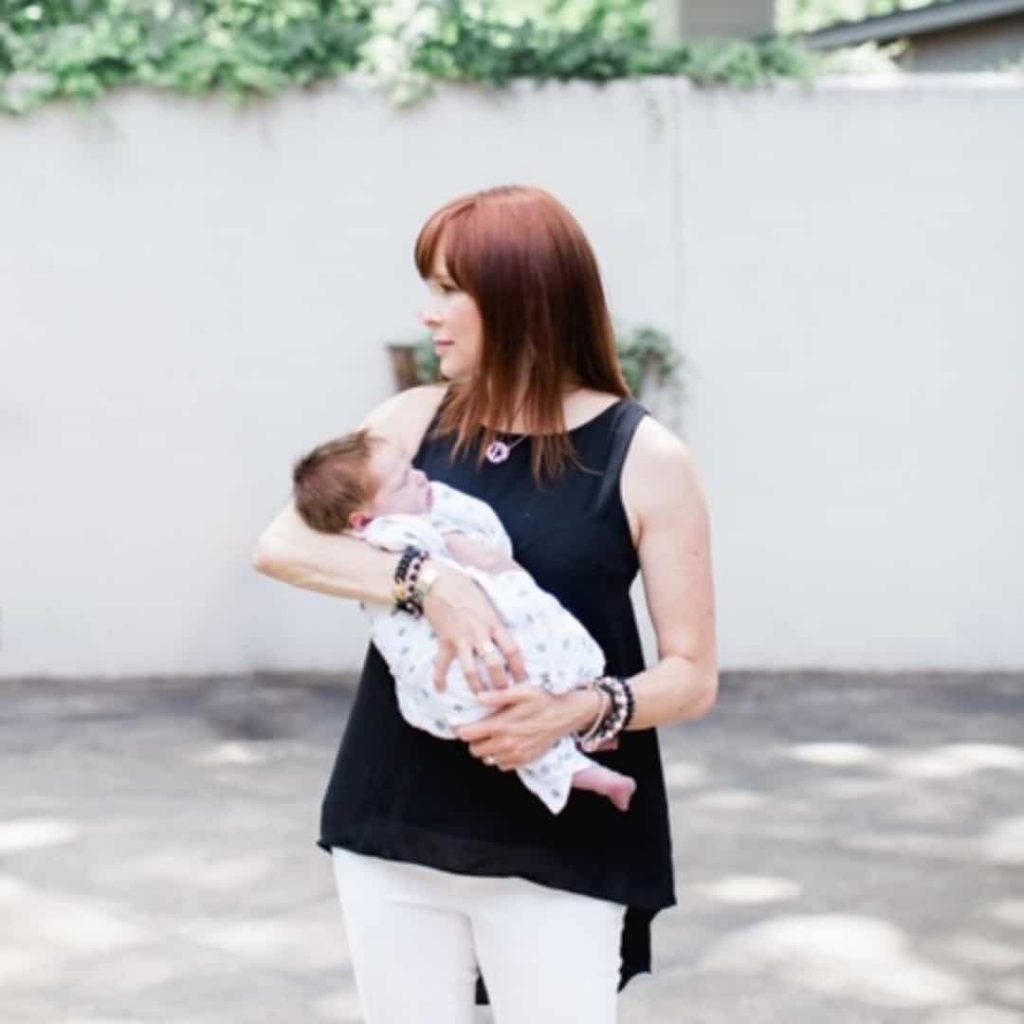
Can you conceive with primary ovarian insufficiency?
It is possible to conceive with POI, but it’s not likely to happen naturally (though it can.) That’s why I threw myself head-first into harvesting whatever was left in my ovaries.
I was determined to be the 10% of POI sufferers who went on to have a biological child, damnit.
I was in and out of endocrinologist’s offices, obsessively researching best practices, doing all the things and taking all the supplements as fast as humanly possible.
If you would have told me drinking motor oil would have improved my egg quality/quantity, we would have been chatting over martini glasses of Valvoline.
POI Made Me Feel Broken
I would walk, frantically, at 3am, when I couldn’t sleep, praying for God to fix me because I knew there was no known treatment.
I was a mess of fear and repulsion of my own body.
I was dry and sex hurt.
My hair was graying.
My short-term memory was severely diminished.
I felt like I was aging before my own eyes, and I was terrified my husband felt the same.
I was sick–and not just from lack of gonadal hormones.
My mental health was fractured.
I could have easily been diagnosed with rapid cycling bipolar disorder–based on how hypomanic I was with my conception efforts, or depressed from despair, on any given day.
I needed help.
Seeking Infertility Counseling After a POI Diagnosis
I see this tendency with those who tell their own premature ovarian insufficiency stories. With the swift decline in remaining follicles, people dive into treatment when usually the biggest issue is the mental detriment.
Because of the austere nature of premature ovarian insufficiency, the first stop should be with an infertility counselor.
I emphasize the need for an infertility counselor as many therapists do not understand the daily pressure and monthly grief of sterility and artificial reproduction.
I encourage anyone struggling with infertility, especially ovarian insufficiency, to seek out therapy first when trying to deliberate your options for treatment.
ReproductiveFacts.org, from the American Society for Reproductive Medicine, is a great place to begin when searching for a mental health professional in your area who specializes in infertility issues.
Typically following a diagnosis of POI, patients are encouraged to use donor eggs for conception. While different fertility methods like embryo adoption are great options for some people, the suggestion enhances many women’s feelings of failure.
There is so much grief for the woman who has lost her innate ability to reproduce.
Enlisting a trained professional to help navigate your feelings and options, while also understanding time constraints for treatment, is imperative for making sound emotional and financially decisions in pursuing the future of your family.
After years of an uphill battle trying to salvage my own eggs and indecision concerning treatment, I sought counseling.
I was able to move on successfully to donor eggs and now have a two-year-old son, who is in every way mine.

Managing POI’s Long-Term Health Risks
But that doesn’t mean my ovarian insufficiency is over.
Premature ovarian insufficiency leaves women at a higher risk for:
- early onset heart disease (the leading cause of death of US women)
- osteoporosis
- dementia
- and a predisposition to cancer in general
Hormone therapy until the age of natural menopause helps reduce some of these risks.
By eating clean, patients can help supply the body with antioxidants to lower the risk of cancer-related illness.
It is important for patients to supplement calcium and vitamin D, as well as to incorporate weight-bearing exercise into their daily routine to strengthen their bones against osteoporosis.
Keeping a diet low in processed foods and supplied with healthy monounsaturated fats can help limit the predisposition to cardiovascular disease.
Primary Ovarian Insufficiency FAQs
What causes primary ovarian insufficiency?
According to Cedars Sinai, the cause of POI is often unknown, although it is believed many women are simply born with it. Other causes include:
- Autoimmune disease in which the woman makes antibodies that attacks her ovaries
- Eating disorders
- Genetic conditions, such as Turner syndrome, Fragile X syndrome, or galactosemia
- Infections that damage the ovaries, such as mumps
- Problems with hormones that regulate the ovaries, such as follicle-stimulating hormone (FSH)
- Surgery on the ovaries
- Thyroid disease
- Toxins that affect the ovaries, such as from radiation or chemotherapy”
How do you test for primary ovarian insufficiency?
If you suspect POI, talk to your doctor. They will likely do a blood test to check different hormone levels, which can be used to diagnose primary ovarian insufficiency.
Is primary ovarian insufficiency hereditary?
Research does suggest that some rare genetic abnormalities may be linked to primary ovarian insufficiency. However, most cases have not been connected to a genetic link.
Life After a POI Diagnosis
I semi-jokingly refer to ovarian insufficiency as the “Ebola of infertility.”
Like the 10% survival rate of the dreaded African virus, less than 10% of women with POI go on to have a biological child. And even if you do, there is a lifetime of preventative behavior modification needed to minimize the morbidity and potential mortality ahead.
It is disease wrought with stigma and despair, as science is unable to improve our outcomes. AKA give us back some of our eggs.
It is a purveyor of mental health issues that often go unaddressed- but it doesn’t have to be that way.
By addressing the mental health issues that can accompany POI upfront, providers and sufferers alike can improve personal outcomes, both with conception and overall health outcomes.
If you are facing this disease, though it may be more rare, you are not alone and can start a more fruitful journey by addressing first, the heart of the issue- your heart, brave girl.
Tell us your primary ovarian insufficiency story in the comments.

Laura Corbin is a Christ follower, wife, mother, physician assistant, and infertility mentor from Tulsa Oklahoma. She had an insatiable love of dogs, gardening, and helping others live healthier lives by working together with patients.

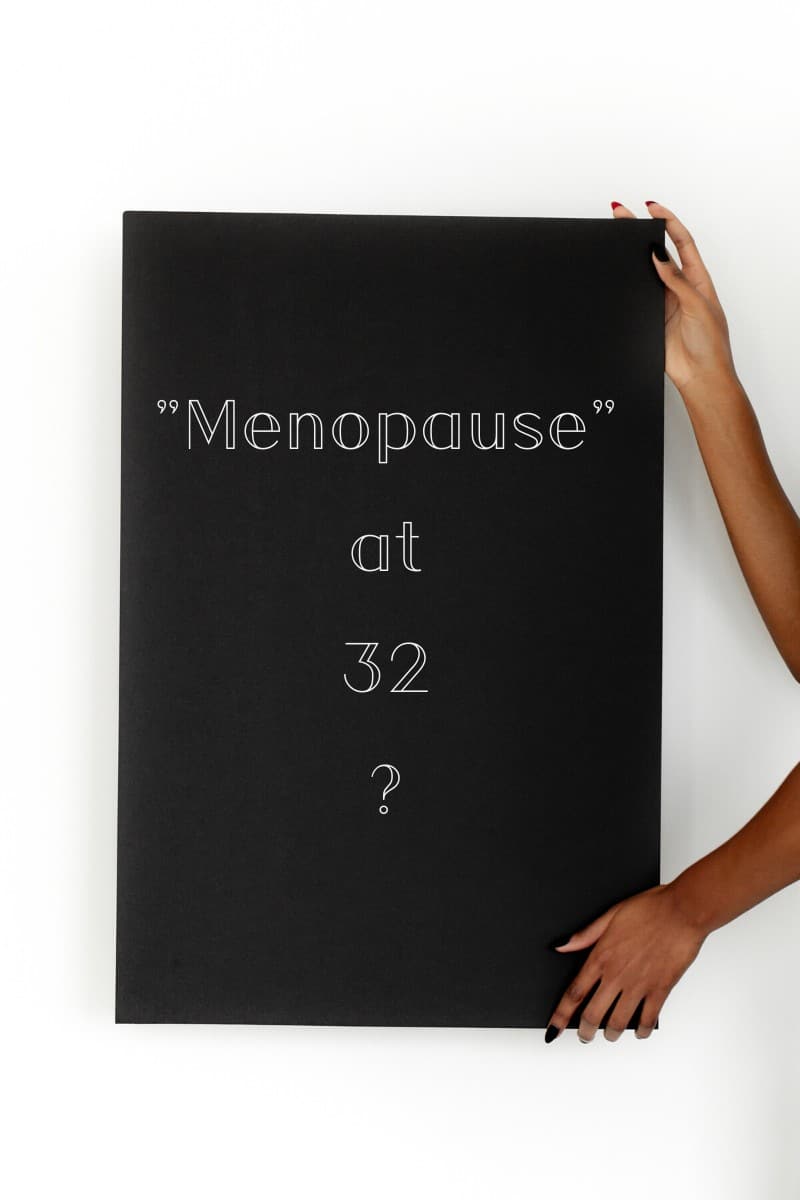
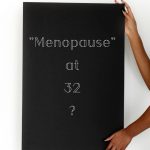
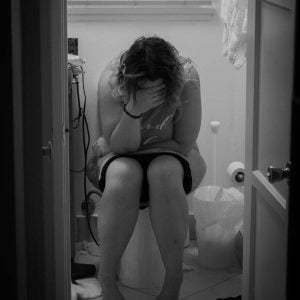

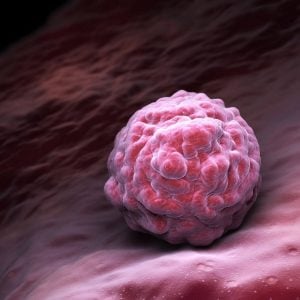





Thank you for sharing your story! I was diagnosed with POI in October 2019. I’m 24, and my husband and I were trying for a baby at the time. How did your husband handle the donor egg situation? I’m very much of the mindset of “Okay, this is my reality – let’s move onto the next step”, but he has really struggled with the idea of a donor. If we have to do a donor, he would prefer a known donor so that he knows who this person truly is, more than their medical records. I feel uncomfortable with a known donor because I worry about the child meeting her. We have to attend 3 months of fertility counselling before going through with the donor process, so we’ll definitely talk to a professional about it, but I’d love to know your input. Thank you!!
Hi! Laura (the guest author of this article) also just did one on donor eggs. https://undefiningmotherhood.com/using-donor-eggs/ I also sent her a message about this comment so she can get back to you!
Saphron- actually we were just like you and your husband- only flip flopped. I really wanted a known donor- my sister and multiple friends had offered and the idea of my at least 1/4 of my DNA being involved was seducing. My husband was very concerned about how it would affect our child down the road. Being adopted and how confusing that got in my middle school years, that train of thought ultimately won out. We proceeded forward with the anonymous donor. When you pursue an anonymous donor, you get more than just health history- you get family background, likes, dislikes, hobbies, personality traits, etc. I have a whole file for my son when he is ready.
My husband handled it all really well. He never considers our donor “the mom” and has really helped me through it all being that I’m still infertile and dealing with my health. He could see how much I was having to work through emotionally and gave me my space while we were trying to conceive. The other thing though was that he gave me a deadline, which was super helpful, because he knew I would just sit and over think all of it until I made myself crazy.
I’m SOOOOO glad you guys are going to counseling! I rolled my eyes at it at first when I was considering it but it was the clarification I/we needed. It will really open up the floor for these discussions and you will have help with the decision making. It also made me feel confident going into this process. I’m proud of you guys! Please let me know if you have any other questions.
Laura~
Was diagnosed august 2022, so grateful I found this tonight! I am navigating this new sad situation. Thank you!!